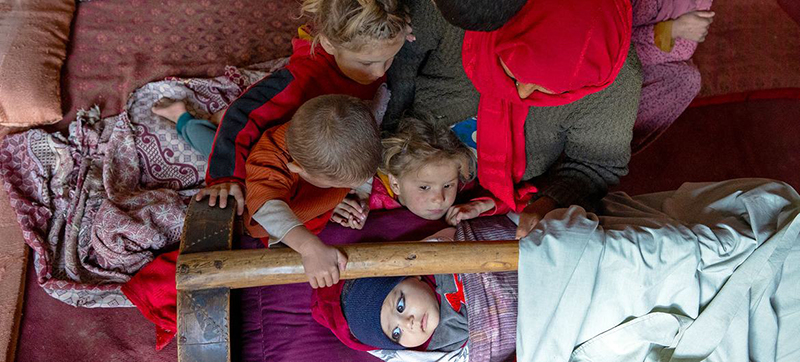 Afghanistan
Afghanistan
Afghanistan still a grave humanitarian crisis, senior aid official says
New York: Climate change and the economic downturn continue to fuel the crisis in Afghanistan, and there have been no “encouraging developments” towards getting girls back into classrooms, a senior UN official said on Tuesday.
Ramiz Alakbarov, UN Deputy Special Representative and Humanitarian Coordinator for Afghanistan, updated journalists in New York on developments in a country where 28 million people now depend on aid to survive.
Immense humanitarian needs
“Afghanistan remains the world’s largest humanitarian crisis in 2023, notwithstanding, of course, the recent devastating earthquakes in Türkiye and Syria,” he said, speaking via videolink from the capital, Kabul.
The UN and partners are seeking $4.6 billion this year to assist the Afghan population.
Mr. Alakbarov reported that over the past 18 months, the Gross Domestic Product (GDP) declined by up to 35 per cent, the cost of a basic food basket rose by 30 per cent and unemployment by 40 per cent.
Additionally, roughly 75 per cent of people’s income is now spent just on food.
Advocating for girls
Meanwhile, the UN continues to engage with the de facto Taliban authorities in the aftermath of edicts banning girls from attending secondary school and women from working with local and international aid agencies on the ground.
“I regret to say that to date we haven't seen any news or any encouraging developments with regard to girls’ education,” said Mr. Alakbarov. “The UN continues to advocate for this.”
Regarding humanitarian work, he noted that the Taliban have made exceptions for women’s participation in the health and education sectors following the visit by UN relief chief Martin Griffiths last month.
“The health sector exemptions on female participation include not just medical services delivery in the facilities, but also psychological support, community-based health activities and nutrition. And it is applied to all females working in offices, hospitals, health centres, or mobile teams,” he said.
Differences in education
The situation is similar for women teachers, including in providing community-based education through non-governmental organizations (NGOs). Although applicable at the national level, there are “a lot more localized solutions” which vary from province to province.
“Those localized solutions are always within the framework of what is the situation on the ground - that is availability of mahrams (male guardians), availability of gender-segregated transportation, and application of the chador or hijab,” he said.
Interference and assurances
Mr. Alakbarov was asked about Taliban interference in aid delivery. He said distributions were stopped in “severe cases”, which occurred in at least two provinces over the past four months. They resumed once the issues were addressed.
“Most of the access incidents and what is leading to the temporary suspension of programmes these days, is related to the directives against Afghan women working for national and international NGOs, and those associated matters,” he said.
“It's not related to security issues, and we continue to enjoy quite a good physical access throughout the country,” he added.
Mr. Alakbarov also addressed a question on how the UN ensures funding is not diverted to the Taliban. He outlined some of the risk management and mitigation mechanisms that are in place, such as payment verification systems and third-party monitoring.
Full human rights
Additionally, beneficiaries can also communicate with the UN through hotlines and other means, including “to raise complaints, or raise alarms, or be a whistleblower.”
The senior aid official also was asked about reported divisions within the Taliban leadership over the education and humanitarian bans, but he did not think it would be helpful to comment.
Instead, he stressed the need for the de facto authorities to ensure Afghan girls and women have the right to be full members of society, which includes being able to work, get an education, and access healthcare and other services.
Support Our Journalism
We cannot do without you.. your contribution supports unbiased journalism
IBNS is not driven by any ism- not wokeism, not racism, not skewed secularism, not hyper right-wing or left liberal ideals, nor by any hardline religious beliefs or hyper nationalism. We want to serve you good old objective news, as they are. We do not judge or preach. We let people decide for themselves. We only try to present factual and well-sourced news.







